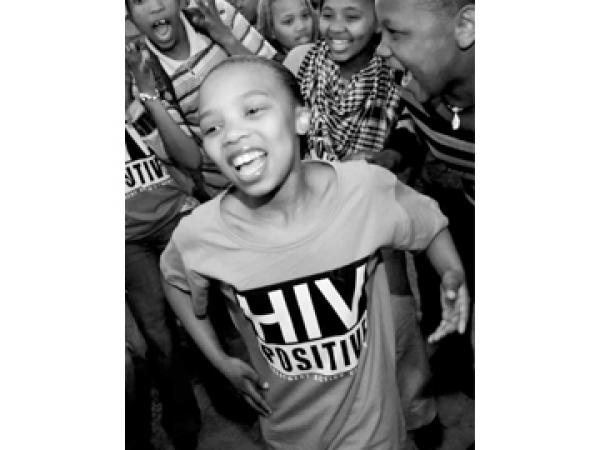Where do political parties stand on health issues?

The People’s Health Manifesto is an initiative of the Treatment Action Campaign. With elections upon us, the TAC wanted to know what political parties proposed to do for healthcare. They put 11 questions to them. This is what they discovered.
In its press release, the TAC stressed that it “is independent of all political parties” and believes parties “must be asked tough questions about how they plan to respond to key problems in our health system.”
The organisation “will also not hold back from saying if we believe that the responses provided by these parties are inadequate.”
The TAC was disappointed with the Congress of the People (COPE) and the Economic Freedom Fighters’ (EFF) failure to formulate a response to the questions.
It also expressed concern at the poor quality of the other parties’ responses. “With the exception of the ANC, the DA, and to some extent Azapo, most of the responses we’ve received suggest a relatively poor understanding of the challenges facing our health system.”
The African Christian Democratic Party admitted it wasn’t fully on top of the issues.
Agang SA, the TAC says, failed to show any understanding of the problems in the health system beyond the need for more capable and qualified health workers.
The UDM, it says, did even worse, failing to respond directly to the questions and only sending a general comment.
Such a poor response by many parties betrays a general disregard for the issues.
The TAC felt the ANC and the DA stood apart from the rest, and showed “a good understanding of health issues”.
While the TAC supports many of the ANC’s policy positions on issues such as National Health Insurance (NHI), it “strongly disagrees” with the party’s support for a statutory media appeals tribunal and the Protection of State Information Bill. These will have “a chilling impact” on the media and on the ability of civil society to hold government to account.
It also expressed concern over “the ANC’s tendency to appoint MECs for Health, several of whom lack the ability, qualifications and commitment to serve people in their provinces effectively.”
Why, it asks, was Sicelo Gqobana appointed MEC of Health in the Eastern Cape and Benny Malakoane as MEC of Health in the Free State?
The TAC was particularly impressed by Azapo’s principled rejection of cadre deployment.
The TAC was also “very impressed” with the DA’s “well-informed response on our question about TB in prisons”, but disappointed by the party’s “half-hearted support” for the proposed NHI programme and its misplaced faith in the private sector as the panacea for the health challenges faced by the country.
It notes that there is willingness from the Department of Health to deal with the critical health issue of TB in prisons, but there is “a serious lack of political commitment from the Departments of Correctional Services and Department of Justice and Constitutional Development”.
Parties generally expressed support for the National Strategic Plan for HIV, STIs and TB 2012 – 2016, but noted that most parties responding positively now, “showed very little interest” during the development of the plan.
“Their commitment remains to be demonstrated,” it stated sceptically.
It found that few parties appreciated the complexity of chronic stock-outs of essential medicines. Despite its rhetoric, ANC members in government have “consistently questioned and underplayed the findings of the report of the Stop Stockouts Project”.
Also, apart from the ANC, parties demonstrated a “general lack of appreciation for the harm quackery does in the fight against HIV and TB and in our society more generally”.
With the exception of the FF+ and Agang SA, parties acknowledge the need for patent law reform. Agang SA was also “insensitive” to the issue of TB in the prison population.
There was agreement among parties on the need for better access to cervical cancer screening. The ANC nationally and the DA in the Western Cape have made great strides in providing cervical cancer screening services and HPV vaccination to young girls, it noted.
To the question of comprehensive sex education and condoms in schools, the DA, Patriotic Alliance and Pan Africanist Movement all answered “yes”. The ANC did not commit to providing condoms in schools, and the FF+ and the ACDP are opposed to it.
Meanwhile, the Human Sciences Research Council (HSRC) recently estimated that a quarter of all new HIV infections occur in females aged 15 to 24. Expecting teens to go to clinics to get condoms or not to have sex, the TAC says, “is not realistic and certainly not a pragmatic or a responsible policy position”.
The TAC is fully behind NHI, but admits that “some of the parties opposed to NHI have legitimate concerns that have to be addressed … However, we disagree that these concerns should amount to a rejection of NHI altogether”.
No parties committed to suspending officials facing charges of corruption, even though “such suspensions would send a very clear message that government is serious about clamping down on corruption.”
The TAC’s Health Manifesto can be downloaded
The responses by the political parties can also be read.
The parties that responded to the TAC’s questions were: African Christian Democratic Party, African National Congress, Agang SA, Azanian People’s Organisation, Democratic Alliance, Freedom Front Plus, Inkatha Freedom Party, Pan Africanist Movement, Patriotic Alliance, United Democratic Movement.
Support independent journalism
Donate using Payfast

Don't miss out on the latest news
We respect your privacy, and promise we won't spam you.

This article is licensed under a Creative Commons Attribution-NoDerivatives 4.0 International License.
